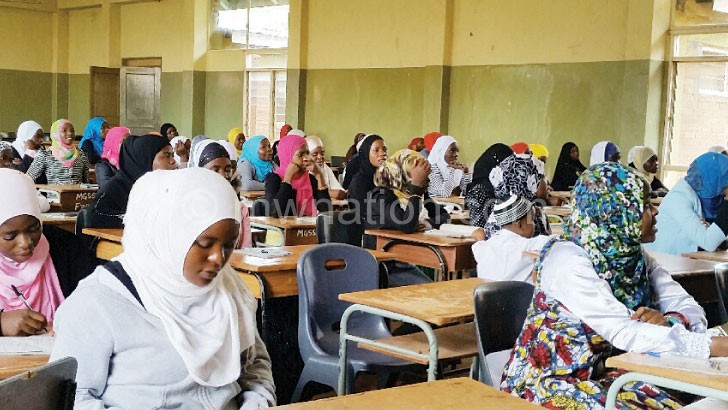Veiled voices of the excluded child
Hajirah Chigwiya, 18, keeps enduring verbal abuse. Almost daily, her fellow learners at Lilongwe University of Agriculture and Natural Resources (Luanar) call her Boko Haram, Al-Qaeda and Al-Shabaab.
The bachelor of science (agricultural extension) beginner is associated with the militant Islamist groups because of her hijab, a head covering worn by some Muslim women. But that is not her innermost worry. She weeps for the girls in public primary and secondary schools where the veil is prohibited.
“The school regulations deny our freedom of religion,” she says.

For the four years she was in secondary school, Chigwiya sacrificed her constitutional freedoms of dressing and religion. She attended St. Michael’s Girls Secondary School in Mangochi and Njamba Secondary School in Blantyre. However, she felt comfortable at the former school because the latter entailed exposing her body to male folks regularly.
“Going to school without a hijab was never easy in those four years. It was like I was stripped naked in front of boys,” she recalls.
Prescribed by the Quran, the hijab is a long, loose and non-see-through garment that covers a lady’s head and neck.
“This is done to protect us. We receive respect from men when we are dressed in a hijab as it hides our bodies from them. Despite the religious barrier, Chigwiya made it to a public university. Muslim Sisters Youth Organisation (Musyo) chairperson Mainatu Milambe observes that Chigwiya’s plight is rampant in learning institutions run by government and other faith groups.
“It is not a big problem with private schools,” she says. “In some government schools with listening administrators, we are able to resolve the issues by engaging parents-teacher associations.”
Equally hit are Rastafarians whose children are often denied access to education in public schools due to dreadlocks. In 2013, the Rastas petitioned government to lift the “unofficial” ban of students with braids. Denying children an education because of their religious belief is unconstitutional, they argue.
The country’s education policy guarantees inclusive education regardless of one’s religion, culture or physical status. However, the Education Act of 2013 is silent on the factors propelling the raging exclusion.
“We have a law that seems to be blind on these issues,” says Benedicto Kondowe, the executive director of Civil Society Education Coalition (Csec).
The case in point could amount to violation of the excluded groups’ right to education, he warns.
“Let the Muslims and Rastas enjoy that right as long as it does not undermine peaceful delivery of education,” Kondowe says.
Ministry of Education, Science and Technology spokesperson Rebecca Phwitiko concurs that public schools are meant for all children regardless of religious or cultural background. She, however, blamed the silent wave of exclusion on decentralisation, saying some of the detested rules and regulations are made at school-level to suit the community values.
“A school, like any other institution, has rules and regulations that prescribe behaviour as well as dress code. As we continue to decentralise more functions to the districts and the schools, these decisions are made at school level, with the input of school management committees and PTAs to suit the communities that our schools serve,” she says.
To her, rules help provide a conducive environment for all learners to excel and achieve their potential “within different contexts”.
However, the ban of hijabs and dreadlocks were endemic during the one-party regime (1964-93). Decentralisation is not to blame, Kondowe asserts.
“It’s an issue that borders on government’s education policy that is silent on these issues yet right to education is provided for in the Constitution. Section 25 says education is a right for all learners regardless of circumstances,” the activist says.
He quotes Section 13 of the Constitution which requires government to develop policies that guarantees interests of the vulnerable groups. For Islamic Information Bureau spokesperson Dinala Chabulika, it is shocking religious intolerance continues undermining rights of the minority groups.
He says: “The law is very clear, but nothing is happening though past presidents emphasised the need to allow our girls wear the hijab.” n





